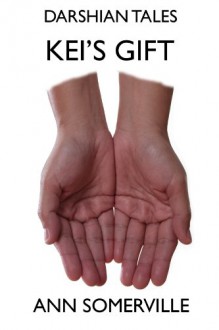
Thirteen-year-old Talia is a member of the Holderkin, a puritanical and patriarchal group of people in the country of Valdemar. Although reading is considered an unwomanly activity, Talia loves to read and secretly dreams of becoming a Herald, or at least going to live with them. All she knows about them is whatever she's been able to figure out from books: they're kind and noble, they keep the peace in Valdemar, and they ride Companions, gorgeous and intelligent white horses. When the Elders tell Talia that it's time for her to be married, she runs away and accidentally stumbles upon one of the Companions she has dreamed about for so long. He doesn't have a Herald with him, so she figures she'll take him back to where he belongs and hopefully convince someone to give her a job. So begins Talia's new life as a Herald trainee.
This book has been a comfort read for me for almost 20 years now. I'll warn you now, there are many layers of love and nostalgia in play here, and I can't even vaguely review this like it's my first time through.
I have a fondness for school stories and for stories in which a mistreated child finds a welcoming and loving new family. Arrows of the Queen fits both of those categories. A good chunk of the book is devoted to Talia adjusting to her new life and classes, learning to trust people and make friends, and dealing with school-related problems. She's shy and sweet and not entirely convinced that she deserves others' love and affection. When several of the Blues (students at the Collegium who aren't Bardic, Healers, or Heraldic) begin bullying her, she doesn't tell anyone, because her past experiences with her family taught her that other people would probably believe her bullies before they'd believe her.
Lackey's writing tends to lack subtlety and paint a very black-and-white picture of the world. Although readers were told that Heralds are human and therefore not perfect 100% of the time, there was very little evidence of that. None of Talia's bullies were Herald trainees, and all the Heralds and Herald trainees were welcoming and kind – pretty much the only thing keeping Talia from making a bunch of friends right from the start was her own fear of exposing too much of herself. There were a few lesbian characters in the book and, again, readers were told that not all Heralds were accepting of this and kept their distance, as though being attracted to the same sex was an illness you could catch, but there was no actual evidence of this in the way anyone behaved on-page. Everyone was kind and accepting.
I suppose this could be viewed as one of the book's weaknesses, but, to be honest, it was nice to read something in which “good” and “bad” were fairly easy to identify and nearly everyone was kind and friendly. I think it's part of the reason why this book is a comfort read for me – bad stuff happens, but for the most part this story is a warm, fluffy blanket of protection. I enjoyed seeing Talia slowly make friends and become more self-confident. Although there were definitely villains (in one instance, they came close to killing Talia), most of them weren't around enough to even have names.
There was a bit of a darker storyline involving attempts to steal the throne, although Talia tended to be so wrapped up in school and figuring out what she needed to learn in order to become a useful Monarch's Own Herald that she was rarely directly involved in any of that. At one point, she and another Herald trainee actively investigated one aspect of the situation, only to hand everything over to an adult Herald when they realized it was too much for them to handle. Later, Talia became accidentally involved in another aspect of the situation while practicing using her empathic abilities – she didn't hear the full story and the importance of her own part in it until later on. Basically, the political aspects of this book involved lots of instances of adults doing stuff way, way in the background, with Talia's path occasionally intersecting with theirs. I found the “school story” aspects to be much more interesting and appealing than the political aspects.
All in all, I enjoyed this book just as much this time around as the other dozen or so times I've read it. Yes, it has its flaws, but somehow it manages to consistently make me happy. I'm a sucker for friendly characters, a fantasy school, and magical companion animals.
(Original review, with read-alikes, posted on A Library Girl's Familiar Diversions.)

 Log in with Facebook
Log in with Facebook 







